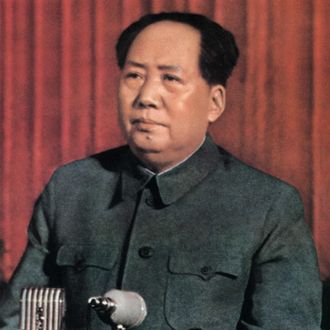
If you want to elicit strong opinions at your next social gathering, bring up the question of how genes influence human behavior. It’s a loaded question both because of its sensitive nature — the conversation inevitably circles to the question of inborn differences between different groups of people — and because of how complicated it is. In many cases, that is, it can be really difficult to figure out the tangled ways genetics and environment interact. It’s not a new problem, but in a paper recently published in Advances in Political Psychology, Rose McDermott of Brown and Peter K. Hatemi of Penn State provide a nice overview of how we can trace the effect of genetics on human history — and vice versa.
The basic takeaway here is that (1) genetic differences can lead to the development of different sorts of cultural and political institutions; and (2) these institutions, once established, can sort of “override” genetic fitness as a determinant of that ultimate genetic question: Who gets to survive and reproduce? (In this post, I’ll be separating out the two, as the authors do in the paper, but this is just for simplification: Obviously both are going on simultaneously, forever, in ways that are much too complicated for any of us to fully grasp.)
Taking the first point first, look at their discussion of lactose intolerance:
Many people from Mediterranean ancestry are lactose intolerant, while few people from areas of Northern Europe suffer from this affliction (Holden & Mace, 2009; Swallow, 2003). Those whose ancestors evolved in warmer climates would have been able to eat cheese and other forms of sour milk such as yogurt, but fresh milk would have gone bad quickly without refrigeration. As a result, such individuals would not have relied on processing fresh milk to meet daily caloric and other nutritional requirements. However, those individuals whose ancestors hailed from colder climates such as Northern Ireland or Scotland would have been able to have access to milk which did not spoil quickly.
Over generations and generations of evolution and political development, these difference add up to very different sorts of institutions. And these institutions, in turn, can help determine winners and losers from a reproductive-fitness standpoint.
The most tragic example of this, genocide, is an extreme case in point:
If a particular leader or group, motivated by racism or some other arbitrary classification, were to engage in the systematic destruction of some part of its population because that group was deemed to be a threat by the extant regime, that change in population could then lead to population differences between that country and others where such an event had not taken place. Indeed, leaders have often ended up “purging” people based on specifics phenotypes that today we understand to be related to specific genotypes. For example, Stalin purged a third or so of his most experienced officer corps on political grounds prior to the Second World War, arguably rendering the Soviet Union much more vulnerable to German military prowess. He also purged those who were the most creative, educated, and artistic members within society since he considered them potential threats to his control.
In this way, purges and genocides have consequences often not considered in the analysis of international politics, such as the change in genetic diversity in the population which remains. Such changes may lead to unknown shifts in population structure, health risks, and a host of complex human phenotypes which can take generations to recover or may result in permanent changes in that population. In short, when humans engage in large-scale artificial selection, such as mass genocides, the structure of future populations can be changed in decisive and unpredictable ways, which can, in turn, exert a profound impact on institutional development, economic success, or health.
Everyone’s familiar with the idea of the Holocaust or American slavery or other unfathomable large-scale political horrors leaving a lasting cultural imprint on a society, or even a psychological imprint on relatives and descendants of victims. But there’s something very sad and evocative about the notion of these events effectively reaching down into our gene pool and permanently — if slightly, in the grand scheme of history — altering the overall definition of what it means to be a human being.




